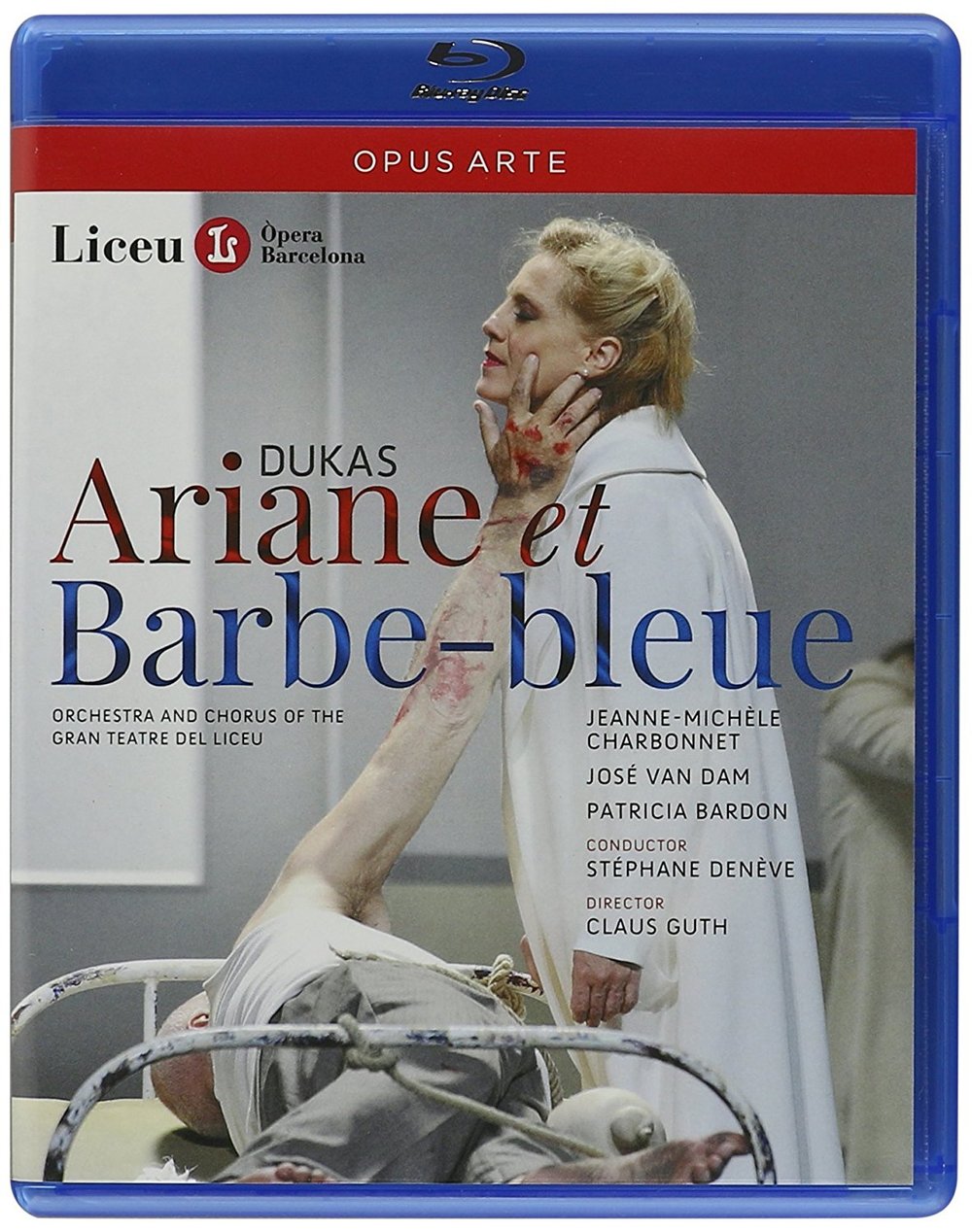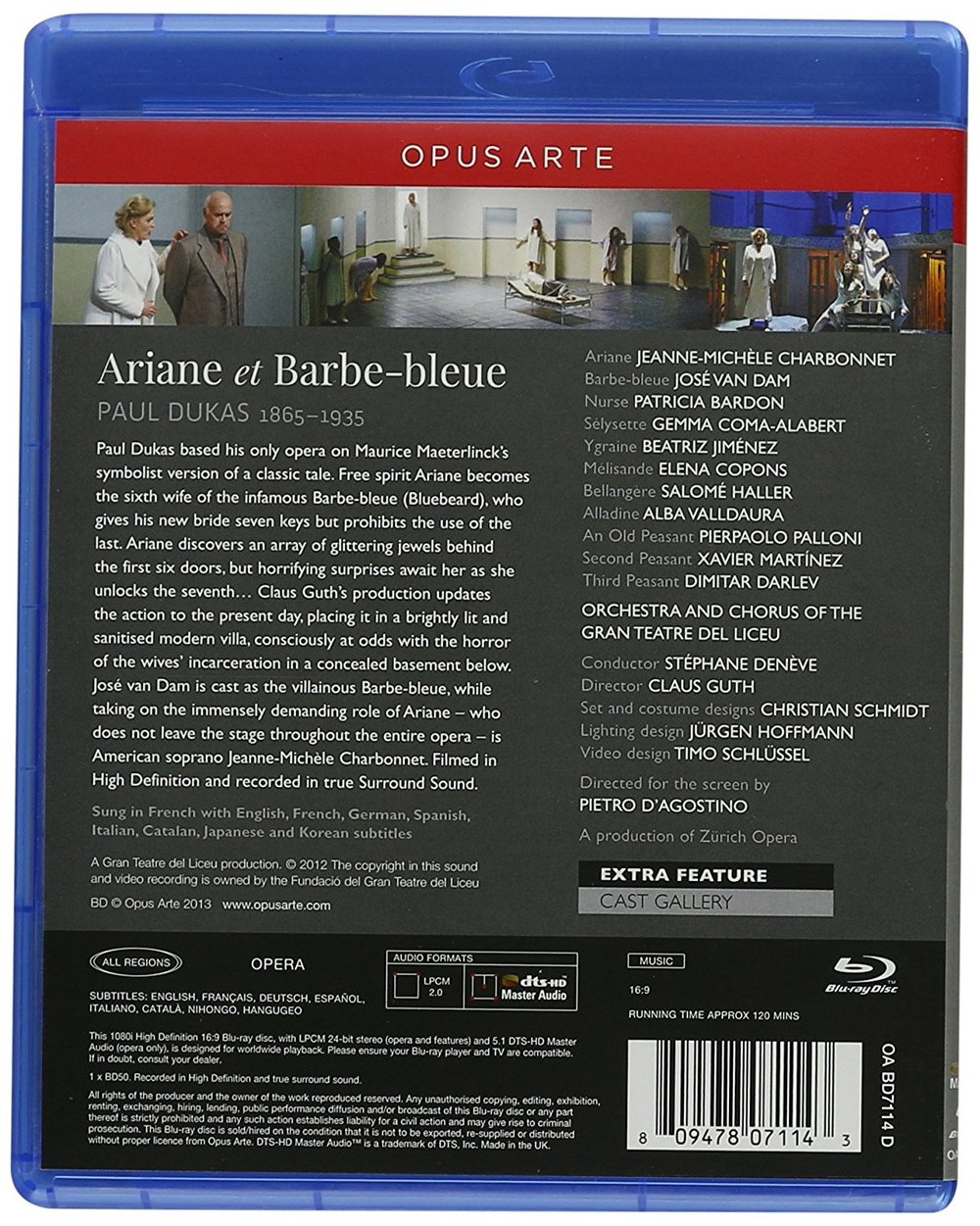

Paul Dukas Ariane et Barbe-bleue opera to a libretto by Maurice Maeterlinck. Directed 2011 by Claus Guth at the Gran Teatre del Liceu. Stars Jeanne-Michèle Charbonnet (Ariane), José van Dam (Barbe-bleue), Patricia Bardon (Nurse), Gemma Coma-Alabert (Sélysette), Beatriz Jiménez (Ygraine), Elena Copons (Melisande), Salomé Haller (Bellangère), Alba Valldaura (Alladine), Pierpaola Palloni (An Old Peasant), Xavier Martinez (Second Peasant), and Dimitar Darley (Third Peasant). Stéphane Denève conducts the Orchestra and Chorus of the Gran Teatre del Liceu. Sets and costumes by Christian Schmidt; lighting by Jürgen Hoffmann; video design by Timo Schlüssel. Directed for TV by Pietro D'Agostino. Sung in French. Released 2012, disc has 5.1 dts-HD Master Audio sound. Grade: B
This is a 20th century work first staged in 1907 to praises from Schoenberg, Berg, and Messiaen. The age of aria was over and orchestration opera was in full flower. According to Ronald Crichton in The Grove Book of Operas, Ariane and Barbe-bleue is well-written and similar to its contemporary opera by Debussy, Pelléas y Mélisande. Director Claus Guth is well known to readers of this website as an exponent of German Regietheater.
Opus Arte doesn't make many mistakes, so there must be considerable merit to this Ariane et Barbe-bleue. The sophisticated but fairly conservative L'OperaDou Jury considered it in 2013. They got hung up; here are some jury comments (slightly edited):
"There were so many things to digest in this opera, it's really hard to make snap judgments. The music was beautiful as were the voices. The rather minimalist staging was effective so one could concentrate on the music and the psychology. All in all, I really enjoyed being introduced to this opera. I would like to see more "controversial" and little-known works like this.”
"Not my kind of music; but as it went on, I liked it better and better. The representation of the psychology was fantastic. The voices were superb, and I think I would like to see it again just to listen. At first I hated the set, but in retrospect I found it brilliant.”
"This is a psychodrama with a difficult, squawking lead soprano with no melodies to sing. The music was distinctly un-memorable.”
"An extremely difficult opera to listen to and experience. There are no melodies to help you connect with the work. But the orchestral score, full of enormous technical difficulties, is superbly performed by the orchestra. The singers have similar voices and the staging is glacial. There is a tense, all-pervading psychological environment that is quite disturbing.”
"Very good production. Interesting music. I enjoyed it much more than I thought I would. Despite that, the voices were not particularly pleasant."
If you have any familiarity with opera after Puccini, you can probably predict from these comments whether you will enjoy this title. Despite the controversy, the jury awarded a decent B grade.
Thanks to Wonk Gordon Smith for this report from the OperaDou Jury.
Here's the Opus Arte trailer:
OR
